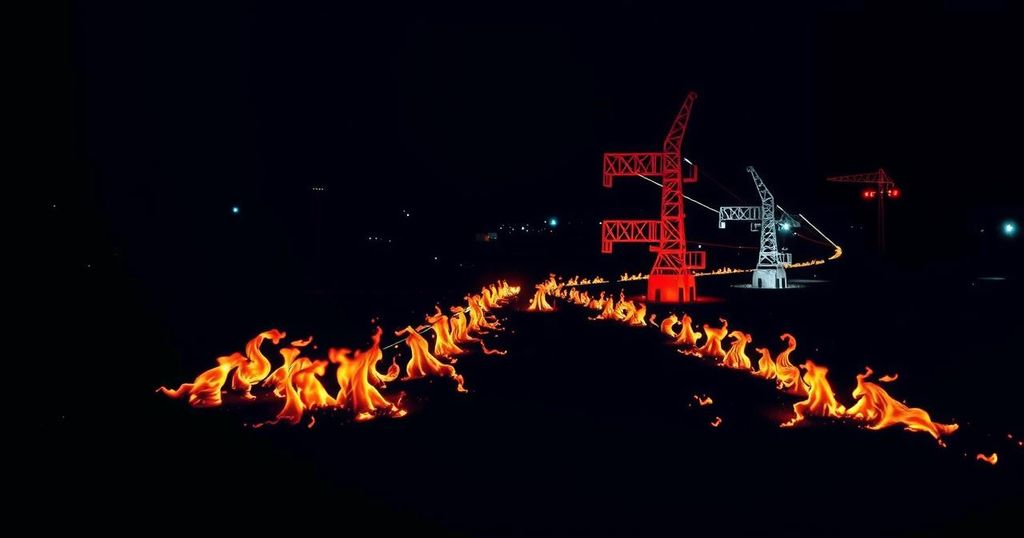Cuba’s Escalating Crises: Energy Shortages and Economic Hardships
Cuba is grappling with a severe energy crisis, marked by prolonged blackouts due to a collapsing power grid. Economic conditions are dire, with rampant inflation and shortages of essentials negatively impacting daily life, leading to public protests and significant emigration. The situation is compounded by a reliance on outdated energy infrastructure and limitations imposed by trade embargoes.
Havana, Cuba, is experiencing a dire energy crisis resulting from a collapsing power grid, which has plunged the nation into extended periods of darkness. Recent blackouts have left some regions without electricity for up to 20 hours a day. The country’s economic situation is equally severe, with widespread impact leading to the suspension of non-essential public services, school closures, and non-functioning traffic signals in the capital. This critical state of affairs is deeply intertwined with Cuba’s inefficient infrastructure and prolonged economic stagnation. The roots of the current blackout lie in the islands fragile energy production framework, heavily reliant on outdated coal-fired power facilities, the majority of which are over four decades old and frequently malfunction. According to state officials, these plants only produce approximately one-third of the electricity needed to sustain the population. Furthermore, Cuba’s ability to procure fuel has been severely impeded by a tightening of the U.S. trade embargo and recently reduced oil supplies from Venezuela, a primary ally. Although the Cuban government has initiated projects aimed at enhancing renewable energy sources, progress is hindered by insufficient investment and external restrictions. The ongoing economic turmoil is marked by soaring inflation and critical shortages of essential goods including food, medicine, and fuel, compounded by repercussions from the COVID-19 pandemic that severely impacted the tourism sector. Public dissent erupted in July 2021, ignited by the severe economic crisis resulting in widespread protests across the nation, with citizens demanding change and expressing their frustrations vocally. Such protests prompted a governmental response, leading to a notable cultural shift that permitted the establishment of private businesses in efforts to alleviate some economic pressures. Amid these challenging circumstances, many Cubans are seeking to escape the deteriorating situation, leading to an unprecedented wave of emigration. Official figures indicate that the population will drastically decline in the coming years, with over 700,000 Cubans having fled to the United States since January 2022, not accounting for those who may have relocated to other regions globally.
Cuba’s ongoing crises stem from decades of economic mismanagement, a frail energy infrastructure reliant on outdated fossil fuel sources, and the tightening grip of long-standing U.S. trade embargoes. The current energy crisis is emblematic of broader issues affecting the island, which has struggled to maintain efficient power production amidst spiraling inflation and widespread shortages of basic necessities. The downturn in tourism following the COVID-19 pandemic has exacerbated the economic landscape, igniting public protests and prompting significant migration movements as Cubans seek better opportunities abroad.
In conclusion, Cuba is facing severe challenges characterized by a collapsing energy infrastructure and an economic crisis that has persisted for years. The impact of the U.S. embargo, mismanagement, and external factors such as decreased fuel shipments from allies have contributed to the situation. Public dissent has emerged in response to these hardships, revealing the urgent need for reforms. Without addressing these foundational issues, the country’s future remains precarious, with many citizens opting to leave in search of stability and better living conditions.
Original Source: jordantimes.com




Post Comment